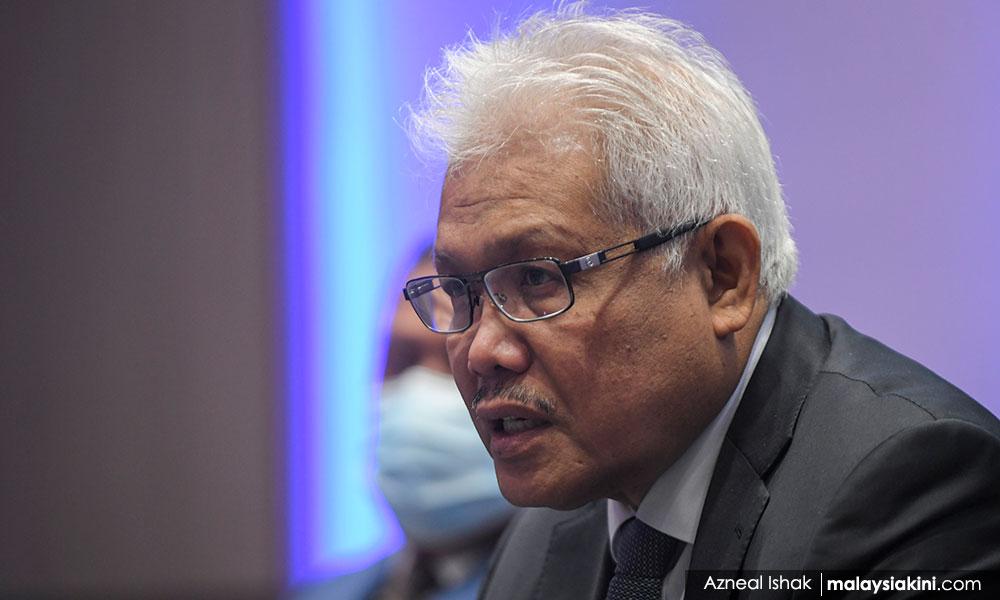For many members of the Sarawak indigenous group, the Penan, the battle to escape poverty starts with a basic need - the fight to become citizens.
Living in remote areas of the state, the group faces various infrastructure issues to register for citizenship, and when they are able to register, they then face a legal challenge, said groups advocating for their rights.
Simon Siah from the NGO LK4C said the main legal barriers for the situation are conditions set in the Federal Constitution.
The Constitution states that if a marriage is not registered, then citizenship follows the mother.
“The National Registration Department (NRD) and the Home Ministry interpret this strictly and even after the parents are properly married and reside in Malaysia, the NRD still refuses to consider the child as a Malaysian citizen.
“In most cases, children who apply for citizenship will apply under Article 15A and this will be rejected many times without any assurance that they will be approved,” Siah said.
Under this Article, the federal government may register a person aged under 21 as a citizen, under special circumstances, only if it deems fit.
Siah said such applications must be made by the parent or guardian who is a relative of the person to be registered.
However, he said, in his experience, NRD officers often brush aside such applicants if they come from low-income or illiterate families or claim that the applications are incomplete.
Siah added rejections are common without any reasons given. Thus, applicants are required to go through the same process of making another application all over again.

All the more reason that special task forces, like the one headed by Sarawak minister Fatimah Abdullah, could be useful as they can vet and make recommendations to the Home Ministry, he said.
The task force set up in 2016 was to assist applications of citizenship for those under 21.
Some 717 applications were received up to July 2019, but the numbers of those approved are not available to the public.
The task force, which was put on hold after the last two changes in the federal government, was reportedly revived in April but no progress has been made known.
Home Minister Hamzah Zainudin when winding up the debate on Supply Bill 2021 in Parliament last December said that individuals who do not have an identity card are to be given a one-year period to submit valid documents to enable them to obtain citizenship.

However, Selangau MP Baru Bian, whose office had been working with many stateless individuals since 2013, urged the government to not limit the application window to one year as communication and transport continue to be problematic in remote areas of Sarawak.
“Transportation and travel were and are still difficult in the remote areas and getting births registered with the government are impossible for many.
“This has caused their children and grandchildren to be labelled as non-Malaysians as their parents or grandparents have no citizenship papers,” Baru said.
Malaysia is a signatory to the United Nations (UN) Convention of the Rights of the Child (CRC).
Article 7 of the CRC states that a child shall be registered immediately after birth and shall have the right to acquire nationality but Malaysia does not appear to apply this clause.
As experience has shown, simply having filed an application and having the right documents will not guarantee citizenship. Neither does being born in Malaysia matter.
“Malaysia has made a lot of progress in the protection of children as we are a signatory to the Conventions of Rights for Children. We now have the Child Act 2001 and other laws protecting children.
“But we maintain that Article 7 has not been implemented and the government has not given a satisfactory answer to this,” said Siah.
Therefore, he believes there would not even be a need to have a special task force once Article 7 is applied as the NRD can award a child with citizenship upon their birth.

It is a solution that breaks the cycle of stateless parents giving birth to stateless children.
Kuala Lumpur-based lawyer Jasmine Wong is representing a stateless Sarawak-born teenager who was adopted by Malaysians but refused Malaysian citizenship.
She concurs that rigid interpretations of the Federal Constitution are a stumbling block.
The case is now before the appellate court after the High Court dismissed her application to compel the NRD to recognise the teenager as a citizen.
“The government imposed many requirements and the biggest one of all is documentation,” said Wong.
As such, she said, a way out is to amend the Federal Constitution to recognise a child’s right to citizenship as long as either one parent is a Malaysian, notwithstanding the marital status of parents, and to not discriminate between adoptive and biological parents. - Mkini




No comments:
Post a Comment
Note: Only a member of this blog may post a comment.